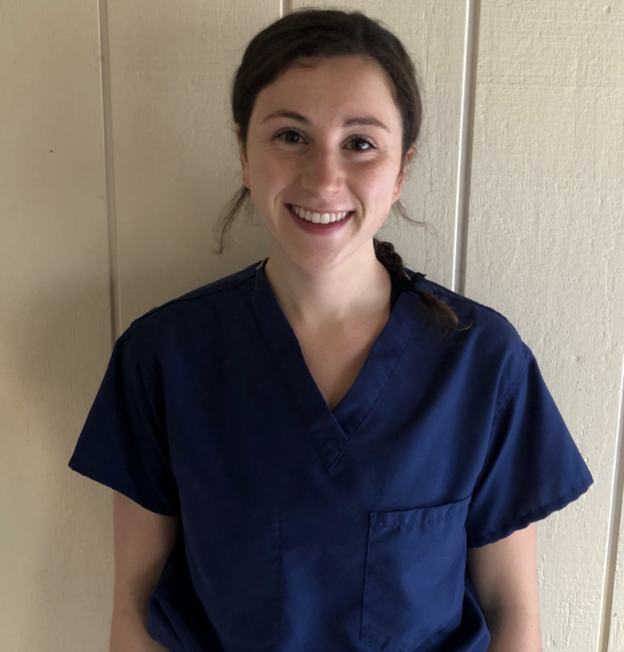
Katherine Bullock graduated from UVM in 2019 and has recently been committed to Duke University’s Physician Assistant Program. At UVM, Katherine studied Nutrition and Food Sciences and minored in Microbiology. These fields of study coincided with many of her PA school prerequisite courses. During her first year at UVM, Katherine helped found the Pre-PA Club. As a Sophomore, she became more involved in the club through leadership opportunities, and by her Junior year, she became the President of the club. Along with being an active member of the Pre-PA Club, Katherine worked as a Licensed Nurse Assistant (LNA) at the Burlington Health & Rehab Center. She then moved on to work on the orthopedic and neurology floor at the UVM Medical Center.
Katherine decided to pursue a career as a PA because she wanted to be able to have a relationship and a positive impact on her patients. PAs have more contact with patients than other health professionals, allowing her to give more time to work with patients to find the best routes of care and teach patients about their therapies and treatment options. She is also excited about the prospect of being able to switch specialties throughout her career. PAs are trained to be adaptable to many specialties, allowing them to switch between different fields, such as primary care, orthopedics, cardiology, etc., without needing to go through residency or specialty training. In addition to this, the fast-track timeline of PA school was also appealing to her because she would be able to treat patients, start her career, and her life outside of work sooner.
After graduation, Katherine worked at a private gynecology office in order to get the 2,000 hours of clinical experience required for PA school admission. She decided to work in an office setting to expand the type of patient care hours she experienced prior to applying. Most applicants to PA school take time off between their undergraduate degrees and PA school. This gives them ample time to meet these requirements, save money for school, and get more life experience. Katherine noted that she was very appreciative of the time after graduation to learn more about herself as a healthcare worker and as a person. In addition to this, the average age of a PA student is about 26 years old, so there should not be a great deal of stress revolving around starting PA school right away.
During her application process, Katherine applied to around 8 schools. However, many applicants choose to apply to more. She primarily applied to schools on the east coast because she knew that she wanted to be closer to family and that she could see herself living on the east coast in the future. When choosing schools to apply to, she was interested in schools that provided interesting electives, a focus on primary care, and high passing rates for the first attempt on the PANCE (PA National Certifying Exam). She also wanted to attend a school that utilized cadaver labs and ensured early clinical experience. That being said, other schools put emphasis on other aspects of the field, such as research.
Katherine explained that the application process for PA school takes about a year. The Centralized Application Service for Physician Assistants (CASPA) opens at the end of April. Applicants should get their applications completed sooner rather than later to ensure a spot in their desired program. Katherine completed most of her applications by June and began to hear back from schools in August. Interviews took place during the fall. She found that patient care experience is one of the most important aspects of PA school admissions, and that clinical hour requirements should be met by the time of application or soon after. In addition to the clinical hour requirement, PA school applications include a personal statement on why you would like to be a PA and 3-5 letters of recommendation. It is important to take note during the application process that some schools start their programs in January and others in August.
After becoming a PA, Katherine hopes to go into family practice. She recommends that those who are applying to PA school read “The Ultimate Guide to Getting Into PA School” by Andrew J. Rodican. She found that it was very helpful in learning how to navigate the application process. She also believes that a career as a PA is perfect for those who are passionate about empowering patients and want to be able to have a direct impact on their health. She finds that being a PA is a great way to learn about medicine and get to know patients personally while making a positive difference.